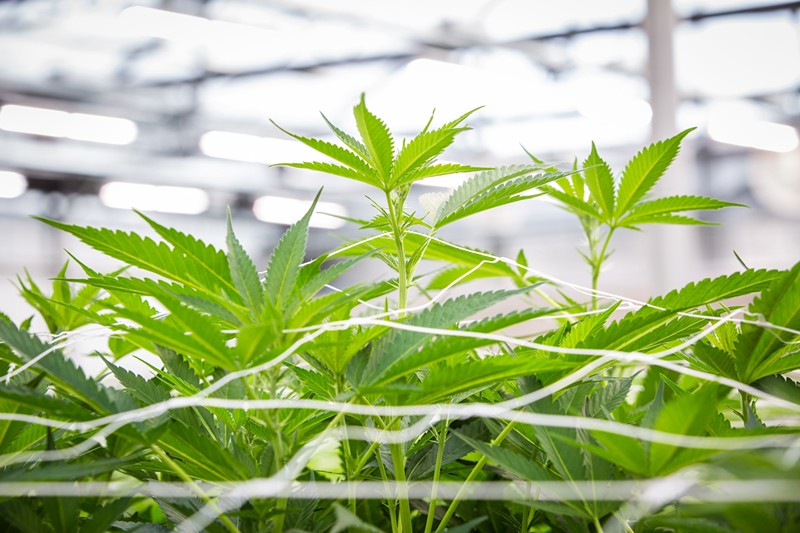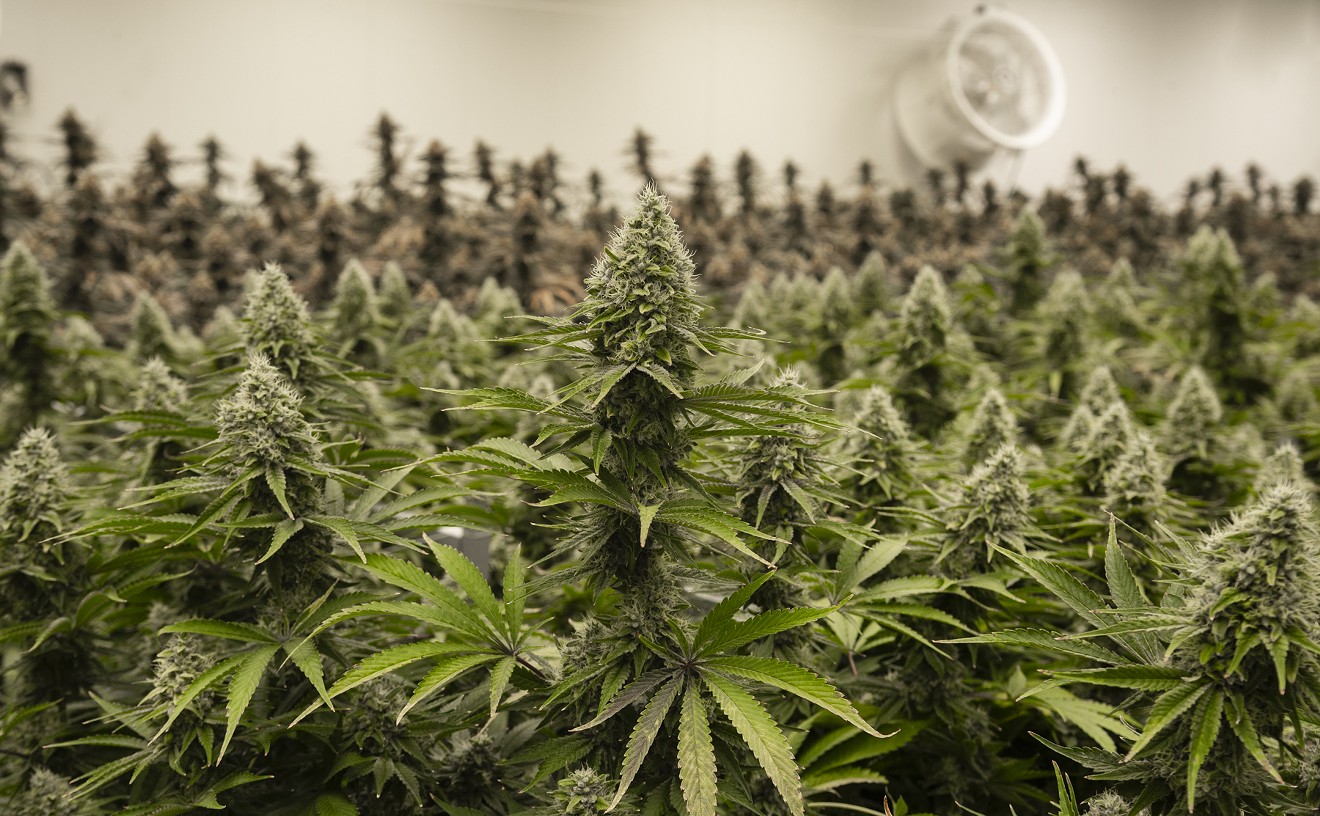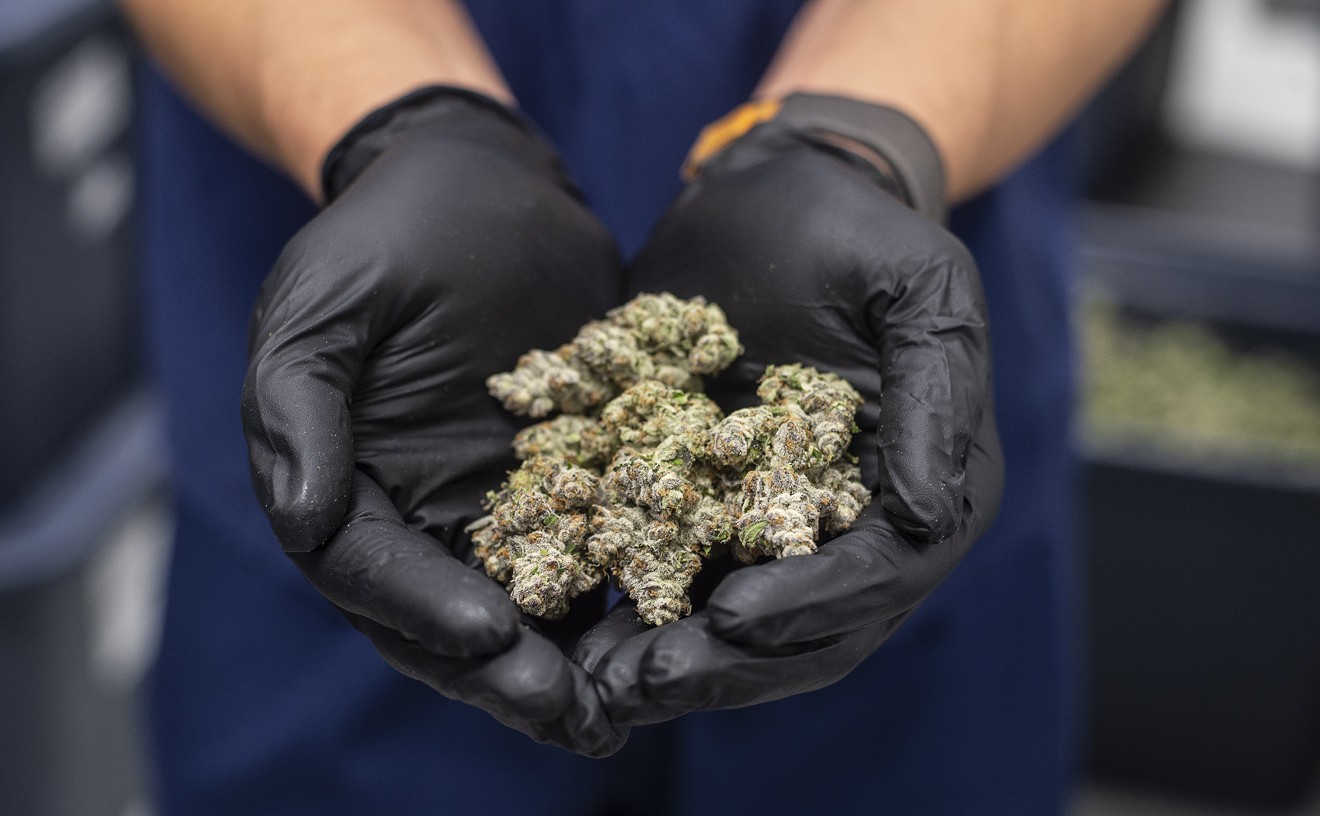Coronavirus has brought the world to a seeming halt, and cannabis is not exempt from the lull.
After a tumultuous 2019, the cannabis industry is taking a massive hit in 2020, with an average 55 percent decline in net worth in the last month alone for major companies like Harvest Health and Recreation, Curaleaf, Canopy Growth, Tilray, and others. This translates to an astonishing $10 billion lost in market capitalization in just the last month.
Over the past 30 days, for example, Harvest lost 71 percent of its value, while Curaleaf cratered by 49 percent. In comparison, the S&P 500 has only fallen by 29 percent in the same timeframe.
Tilray, one of the largest players in the industry, sold $90 million worth of shares Friday, causing the stock price to dive 32 percent, for a total 83 percent loss in net worth over the last month. Headquartered in British Columbia, the company is now worth just $317 million, down from a $7.5 billion valuation just a year ago.
The damage can be seen in Arizona-based companies, too. Harvest Health and Recreation in Tempe is experiencing a cash crunch, although it has chosen to go the debt route as opposed to selling shares. Its stock has taken a 71 percent dive this month.
On Wednesday, Harvest also announced the departure of Harvest's executive chairman, Jason Vedadi, who abruptly resigned, trading voting shares to CEO Steve White.
"I set out to help build a first-class multi-state cannabis company," said Jason Vedadi in the press release. "With the closing of this financing and the additional strength of ICG's management team, Harvest is well-positioned to take the next steps in its development and I felt it was a good time for me to step away and allow Steve and his team to move the company forward while continuing to be available as a resource to the company."
In response to questions about Vedadi's hasty exit, Christine Hersey, director of investor relations for Harvest, in an email to Phoenix New Times, wrote, "Being an executive in the cannabis industry at a public company is extremely stressful and he felt with the additional capital it was a good point to transition the leadership and move on to pursue other interests."
"I believe in the credibility and validity of the organization, and when I see Harvest's stock and what's happened to it, I think it's undervalued due to the amount of licenses they hold," said Demitri Downing, founder of the Marijuana Industry Trade Association's Arizona chapter.
Curaleaf, with eight Arizona locations, also has sustained a big hit this month, down 49 percent. The company has taken at least one precaution against the virus: stocking up on about $2 million worth of vapes (90 to 95 percent of which are normally manufactured in China) from a U.S. supplier, which should last it about five months, Executive Chairman Boris Jordan said in an interview with Bloomberg. Only time will tell if this move will save Curaleaf any face.
COVID-19 could have other negative implications on the industry as well, such as trade show cancellations, a drop-off in tourism revenue due to travel restrictions, and potential government-sanctioned quarantine.
Though the coronavirus has been a primary reason for the recent drop in cannabis stocks, other factors have also contributed to the dramatic decline. Marijuana stocks were already a risky proposition prior to the spread of the novel coronavirus, since it's rare for most marijuana companies to turn a profit consistently. As a February 2019 Barron's headline put it, "You'd Have to Be High to Buy American Marijuana Stocks," due to the high risk involved for reasons from federal restrictions to the inability to cross state lines with the plant.
Cannabis utilizes many products made in China, especially in the vaping segment. According to Marijuana Business Daily, industry analysts estimate that 90 to 95 percent of all components that make up a marijuana vaporizer are manufactured in factories in Shenzhen, China, where shipment delays of two to four weeks have become the norm due to factory shutdowns.
While people scramble for essential items like toilet paper and canned food in preparation for a looming quarantine, marijuana may not be high up on their lists. Some patients are also wary about going to the dispensary, where other patients may be ill, to pick up their herb. While some dispensary lines are long, companies are issuing precaution updates to patients and others are promoting their delivery services.
Sam Richard, executive director of the Arizona Dispensaries Association, is most concerned about cannabis patients and industry employees: "The Association is monitoring the situation very closely and supporting our member dispensaries with real-time information and resources. The health, well-being, and safety of more than 15,000 employees and roughly a quarter-million patients across Arizona remains the singular focus," he commented.
[
{
"name": "Air - MediumRectangle - Inline Content - Mobile Display Size",
"component": "18478561",
"insertPoint": "2",
"requiredCountToDisplay": "2"
},{
"name": "Editor Picks",
"component": "16759093",
"insertPoint": "4",
"requiredCountToDisplay": "1"
},{
"name": "Inline Links",
"component": "17980324",
"insertPoint": "8th",
"startingPoint": 8,
"requiredCountToDisplay": "7",
"maxInsertions": 25
},{
"name": "Air - MediumRectangle - Combo - Inline Content",
"component": "16759092",
"insertPoint": "8th",
"startingPoint": 8,
"requiredCountToDisplay": "7",
"maxInsertions": 25
},{
"name": "Inline Links",
"component": "17980324",
"insertPoint": "8th",
"startingPoint": 12,
"requiredCountToDisplay": "11",
"maxInsertions": 24
},{
"name": "Air - Leaderboard Tower - Combo - Inline Content",
"component": "16759094",
"insertPoint": "8th",
"startingPoint": 12,
"requiredCountToDisplay": "11",
"maxInsertions": 24
}
]













